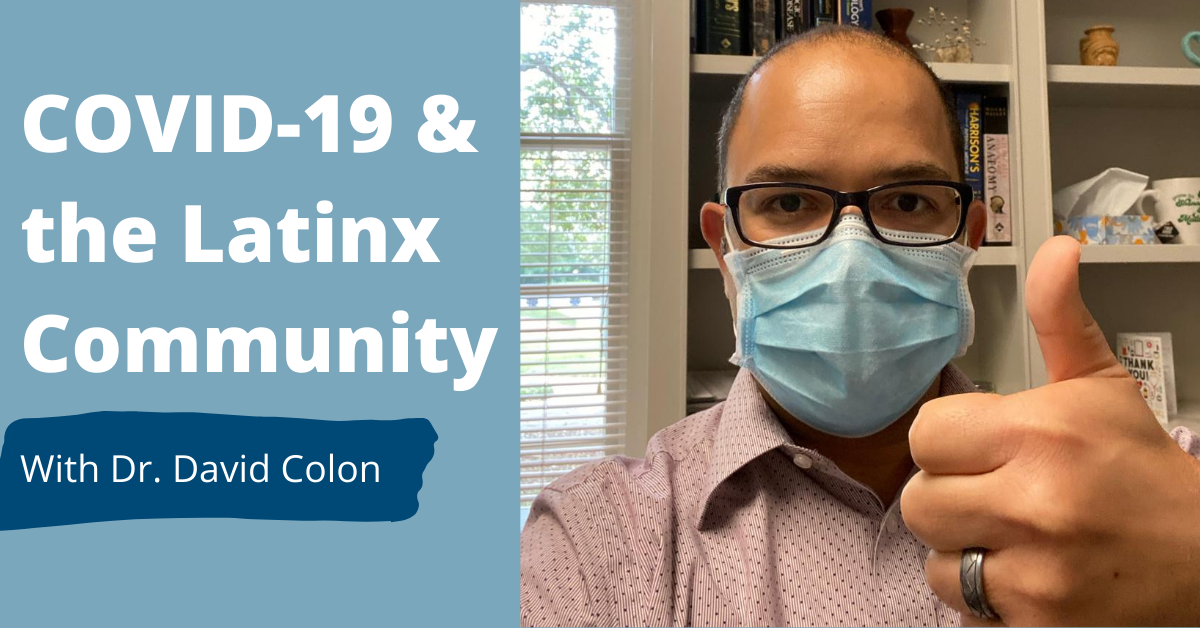
We’ve probably all heard the statistics by now – COVID-19 is disproportionately affecting the Latinx community. The Centers for Disease Control and Prevention (CDC) reports that Latinx people are hospitalized for COVID-19 at four times the rate of white people. These staggering national statistics also hit close to home right here in Charlotte.
“Latinxs make up 14 percent of Mecklenburg County’s total population, but account for one third of all coronavirus cases,” says Dr. David Colon, an internal medicine specialist at Tryon Medical Partners’ Pineville location.
Research has proven that minority groups are at an increased risk, infected with coronavirus at higher rates for a multitude of reasons. Whether it be risks at home due to living in more densely populated areas and multigenerational housing, or at the workplace in jobs that cannot be done remotely, the numbers are staggering. Add pre-existing conditions and lack of access to healthcare stemming from low socioeconomic status, and we find ourselves in the middle of an epidemic. “On top of all of these risk factors, there can sometimes be the addition of a language barrier, so it is very important to communicate directly in Spanish about ways to help reduce the spread of this virus,” Colon said.
Along with Dr. Colon, Tryon Medical Partners has two Spanish-speaking internal medicine providers, Dr. Luis Bendezu at the Ballantyne office and Dr. Robert Bowen III at the SouthPark office.
“I just saw three new Hispanic patients this week who were referred to me by other patients,” Colon shares. “We are able to have a dialogue and really get to know each other, and I can write things down for them in Spanish. There is an established comfort level once the language barrier is removed.”
As to providing any recommendations for how the Latinx community can help protect itself during this pandemic, Dr. Colon says that the same advice we’ve been hearing for months applies here: hand washing, social distancing and wearing a mask.
“One of the things that is so tricky about COVID-19 is how contagious it is and how easily it spreads, even in someone asymptomatic. Hugging and kissing is a huge part of Latinx culture, and we need to try to break this habit right now. Even though we are used to larger family gatherings, we know that the more people there are in a group, the more potential for germs and spread.”
In efforts to reach the Charlotte Latinx community, the Latin American Coalition of Charlotte was awarded a $100,000 grant by the North Carolina Department of Health and Human Services to help combat the spread of COVID-19. With this money, masks are available to front line workers, and it helps to provide education and support to those who have been directly affected by the virus.
Dr. Colon says that healthcare providers can use their position as educators to pass on knowledge and help their patients and the public.
“If someone thinks that they may have COVID-19 or has been exposed, it’s important that they get tested, as they could be a potential spreader, too,” Colon says. “With all that is unknown about this virus, we need to keep reinforcing what we do know to be effective in helping to prevent the spread.”
Tryon Medical Partners has eight locations in and around the Charlotte area and is offering virtual visits and Virtual Urgent Care should you or someone you know need it. Tryon also offers two satellite COVID-19 testing locations for the public.
Dr. Colon adds, “It’s important to remember that members of the Latinx community are not alone in this. We are here to help guide you and take care of you, pandemic or otherwise.”

